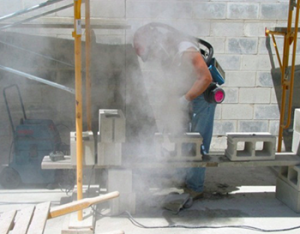 Shopping mall patrons have the right to feel safe and secure while on premises, both inside the mall and in the parking lot. The tragic, recent shooting of an elderly woman outside a Myrtle Beach shopping mall highlights the need for proactive shopping mall security measures.
Shopping mall patrons have the right to feel safe and secure while on premises, both inside the mall and in the parking lot. The tragic, recent shooting of an elderly woman outside a Myrtle Beach shopping mall highlights the need for proactive shopping mall security measures.
By implementing proper security training and technology, many violent shopping mall and parking lot crimes may be prevented.
Time Magazine highlights the most sophisticated, proactive security measures currently used in major shopping centers across the U.S.:
In many large malls, security measures begin well before shoppers enter the stores. Parking lots are designed with choke points that funnel cars through areas that cause them to slow down. Some use automatic license plate readers plugged into local police databases. If a car is stolen or has otherwise been flagged, the system can issue an alert.
Walk into any shopping center in America and you’ll see uniformed guards — an overt security presence used for deterring crimes as much as stopping them once they’re already happening. But major malls have less obvious systems in place. Cameras record shoppers’ behavior, and bomb sniffing dogs seek out explosives like they do in mass transit hubs. There are also plain-clothes security teams. If they notice someone acting suspiciously, they may approach the person and ask politely, “Can I help you?” The technique, called “soft contact,” is often used in shopping centers in Israel, which have been the target of terror attacks in the past.
One of the most complex mall security challenges in the U.S. is presented by the Mall of America in Bloomington, Minnesota. With 520 stores, 4.3 miles of storefronts, an indoor amusement park and more than 40 million annual visitors, Mall of America personnel train year round for security issues from shoplifting to an active shooter situation. In an interview with trade publication Security Info Watch, Mall of America’s security director Doug Reynolds described lockdown drills, which the mall conducts twice a month. When security sounds an alarm, the stores bring customers inside, locking the gates and turning off the lights. “We make it simple,” Reynolds said. The mall also relies on behavioral recognition techniques to try and identify anything out of the ordinary.
Read full article here.
Shopping Mall Patron Rights
Shopping mall and parking lot owners have a responsibility to protect patrons legally on the premises from any foreseeable harm. Should they fail in this duty, victims may elect to seek justice and pursue a legal claim for any injuries or wrongful deaths, which occur as a consequence.
We’ve Recovered Millions for Victims of Security and Safety Negligence in Georgia…Contact us Now for a Free Consultation.
 The Murray Law Firm has an extensive and successful record representing victims of property security and safety negligence. We have recovered millions of dollars for our Clients, and recently obtained a $29.25 million dollar verdict for one of our Clients in Fulton County State Court.
The Murray Law Firm has an extensive and successful record representing victims of property security and safety negligence. We have recovered millions of dollars for our Clients, and recently obtained a $29.25 million dollar verdict for one of our Clients in Fulton County State Court.
We represent our Clients on a contingency agreement, which generally means that no fees or payments are owed until and unless we recover. Anyone seeking further information or legal representation is encouraged to contact us via e-mail (click here) or by telephone at 888.842.1616. Consultations are free and confidential.
Choosing the Right Attorney
Selecting the right attorney for you or your family is highly important. You must feel confident that the attorney you hire has a complete understanding of the law applicable to your particular case, and has successful experience in handling such cases.
Important: Do not hire a lawyer who has violated the Rules of Professional Conduct!!!
You should not hire an attorney who calls you or visits you unsolicited, or anyone that contacts you directly to offer legal services. This activity is strictly prohibited by Rule 7.3 of the American Bar Association (ABA) Model Rules of Professional Conduct, which states as follows:
 A LAWYER “SHALL NOT” CONTACT A PROSPECTIVE CLIENT THROUGH A “LIVE TELEPHONE” OR AN “IN-PERSON” VISIT.
A LAWYER “SHALL NOT” CONTACT A PROSPECTIVE CLIENT THROUGH A “LIVE TELEPHONE” OR AN “IN-PERSON” VISIT.
– RULE 7.3, ABA MODEL RULES OF PROFESSIONAL CONDUCT.
If an attorney, or someone acting on behalf of an attorney, contacts you in this manner, that attorney is in violation of this Rule. This unethical and unprofessional activity on the part of the lawyer is good sign that you should stay away. It is imperative that you are represented by an attorney who is capable of advocating for you within the confines of the law, and an attorney who fails to abide by the Rules of Professional Conduct is probably not the best fit. In fact, any such attorney should be immediately reported to the local State Bar Association. If you have been contacted in such an unsolicited manner, contact us and we’ll assist you in filing a report.

Contingency Fees Disclaimer: “Contingent attorneys’ fees refers only to those fees charged by attorneys for their legal services. Such fees are not permitted in all types of cases. Court costs and other additional expenses of legal action usually must be paid by the client.”
 Georgia Legal Report
Georgia Legal Report




 The Murray Law Firm has recovered millions of dollars for victims of unsafe workplaces in Georgia, and recently obtained a $29.25 million dollar verdict for one of our Clients in Fulton County State Court.
The Murray Law Firm has recovered millions of dollars for victims of unsafe workplaces in Georgia, and recently obtained a $29.25 million dollar verdict for one of our Clients in Fulton County State Court.
 The Murray Law Firm has recovered millions of dollars for victims of unsafe workplaces in Georgia, and recently obtained a $29.25 million dollar verdict for one of our Clients in Fulton County State Court.
The Murray Law Firm has recovered millions of dollars for victims of unsafe workplaces in Georgia, and recently obtained a $29.25 million dollar verdict for one of our Clients in Fulton County State Court.